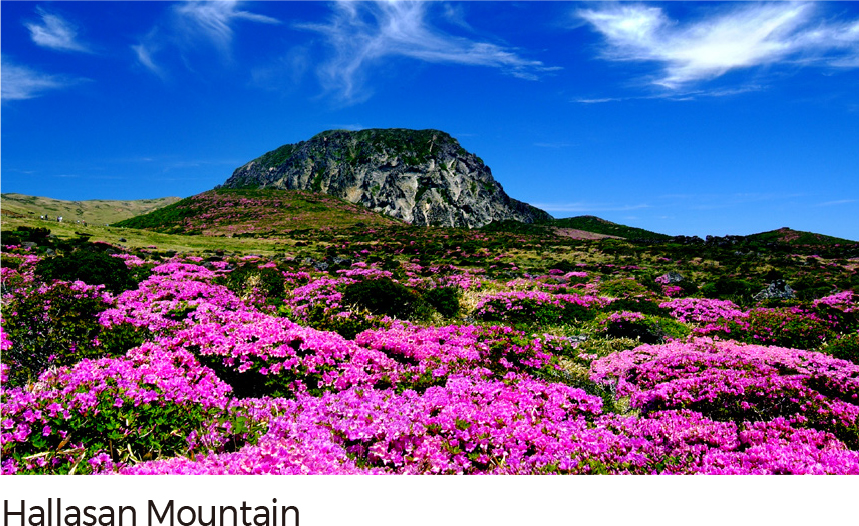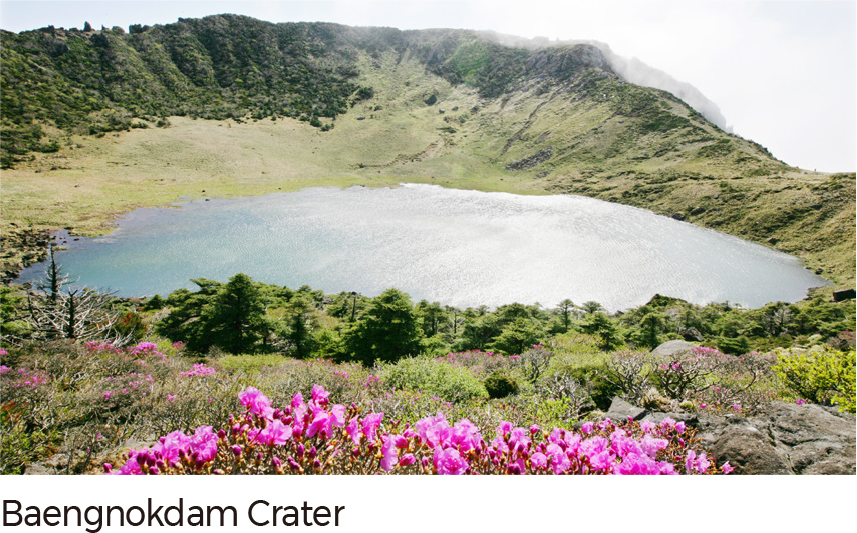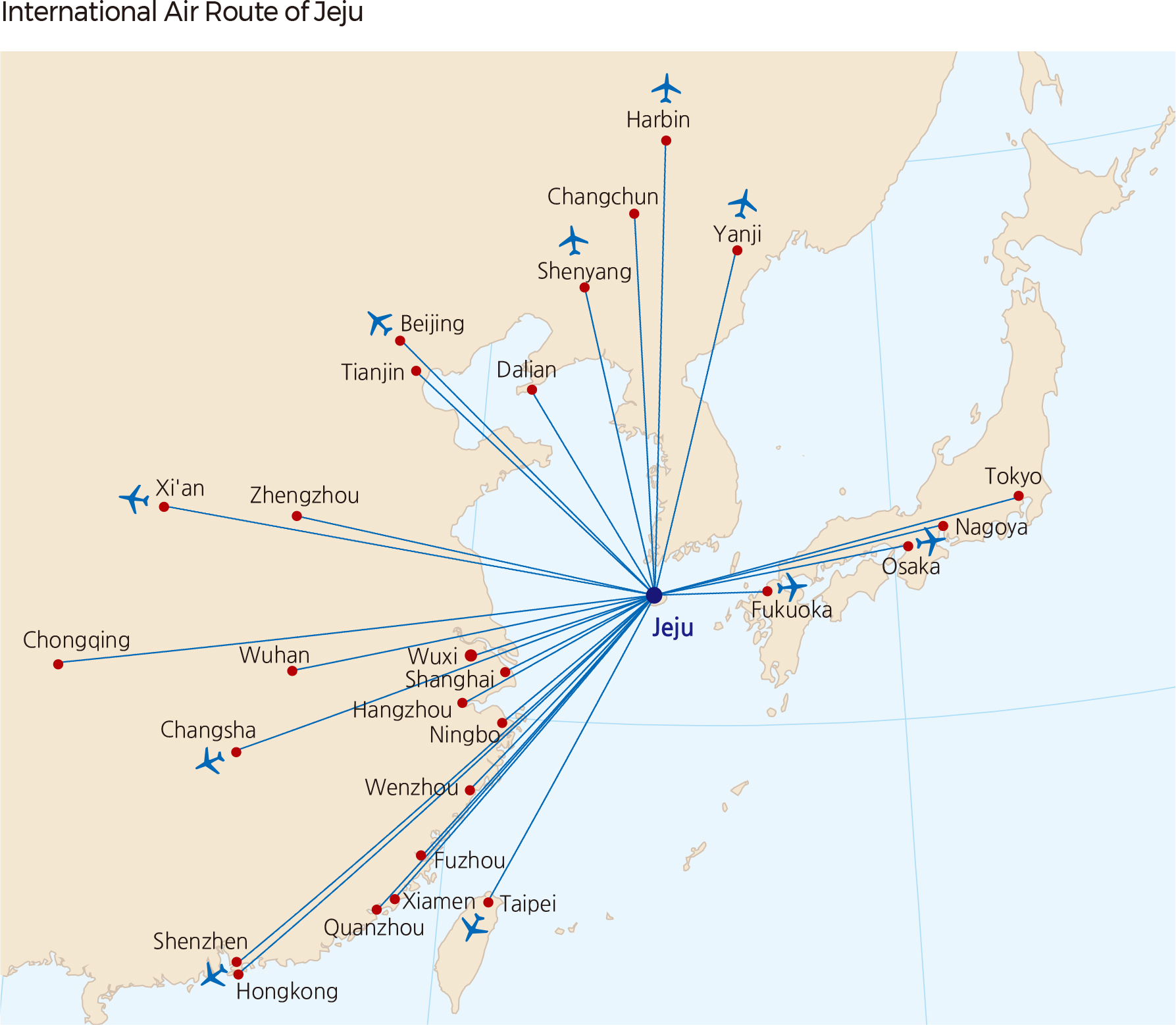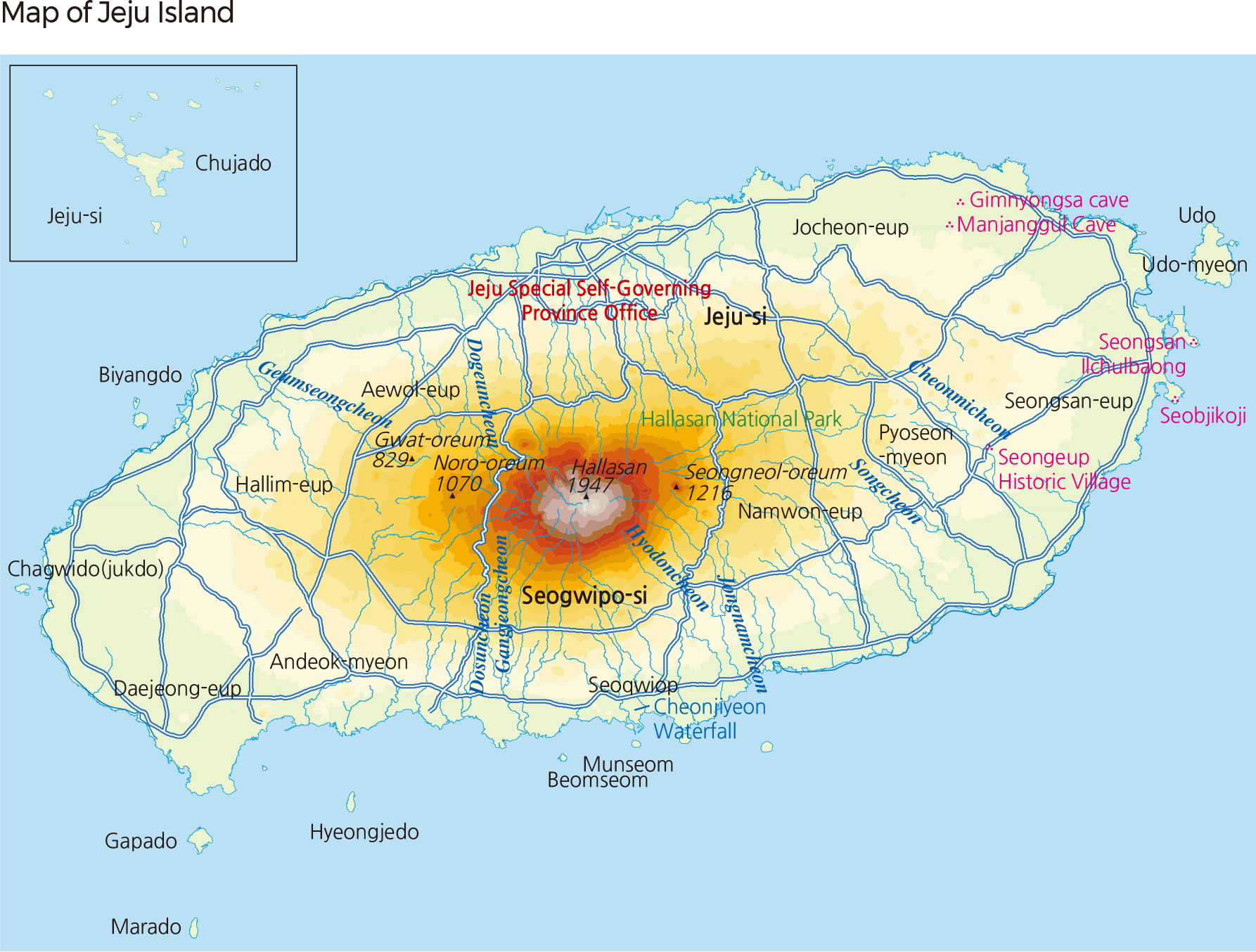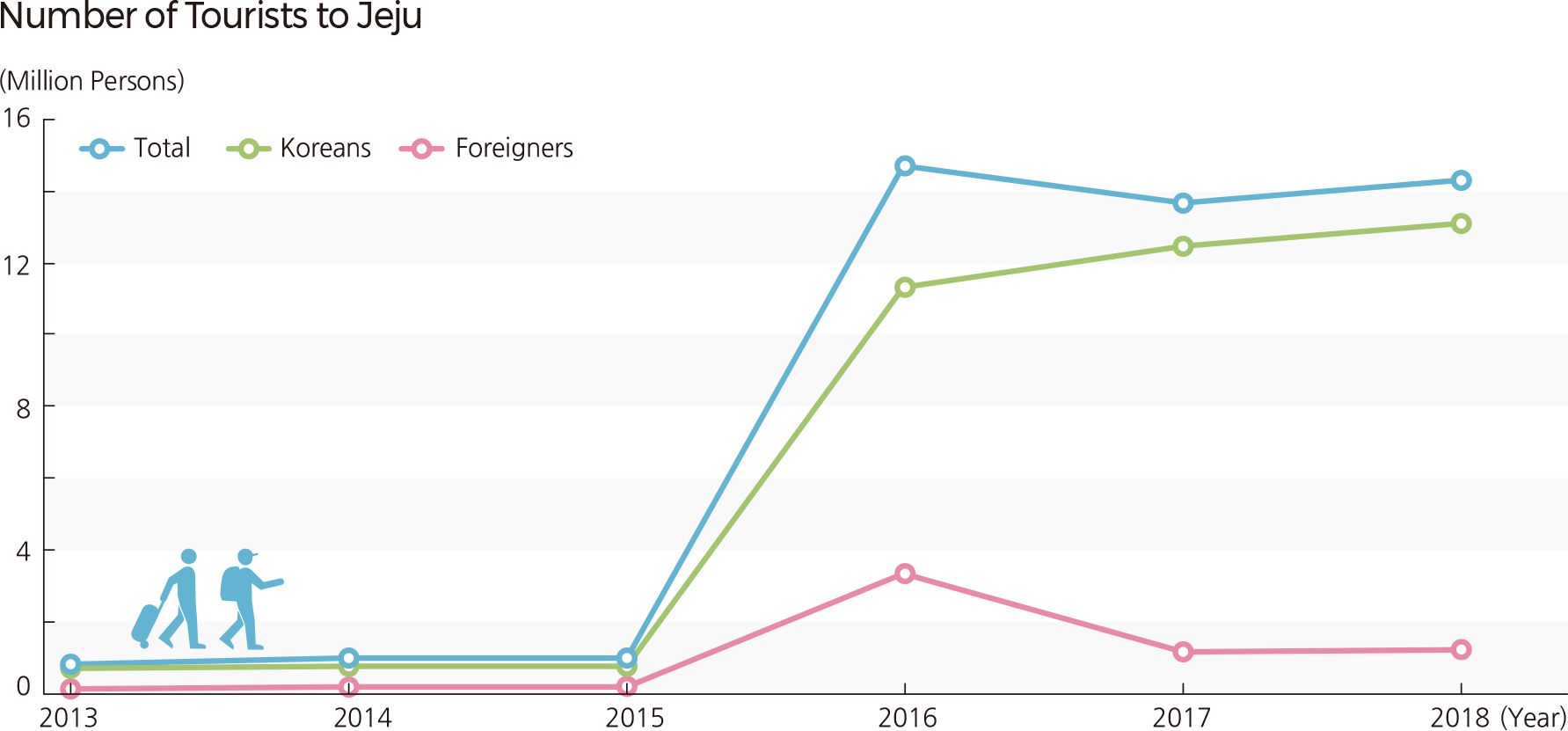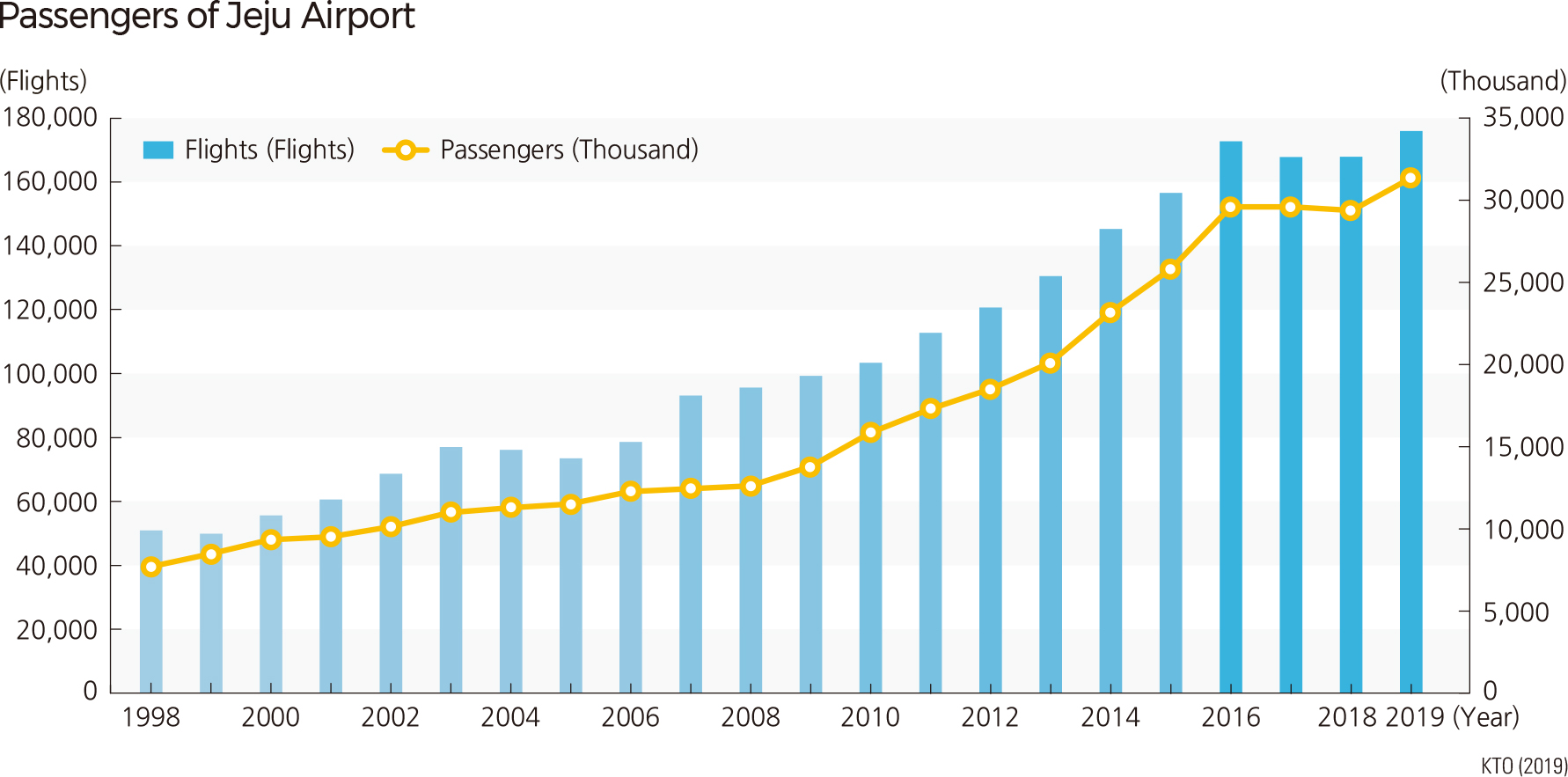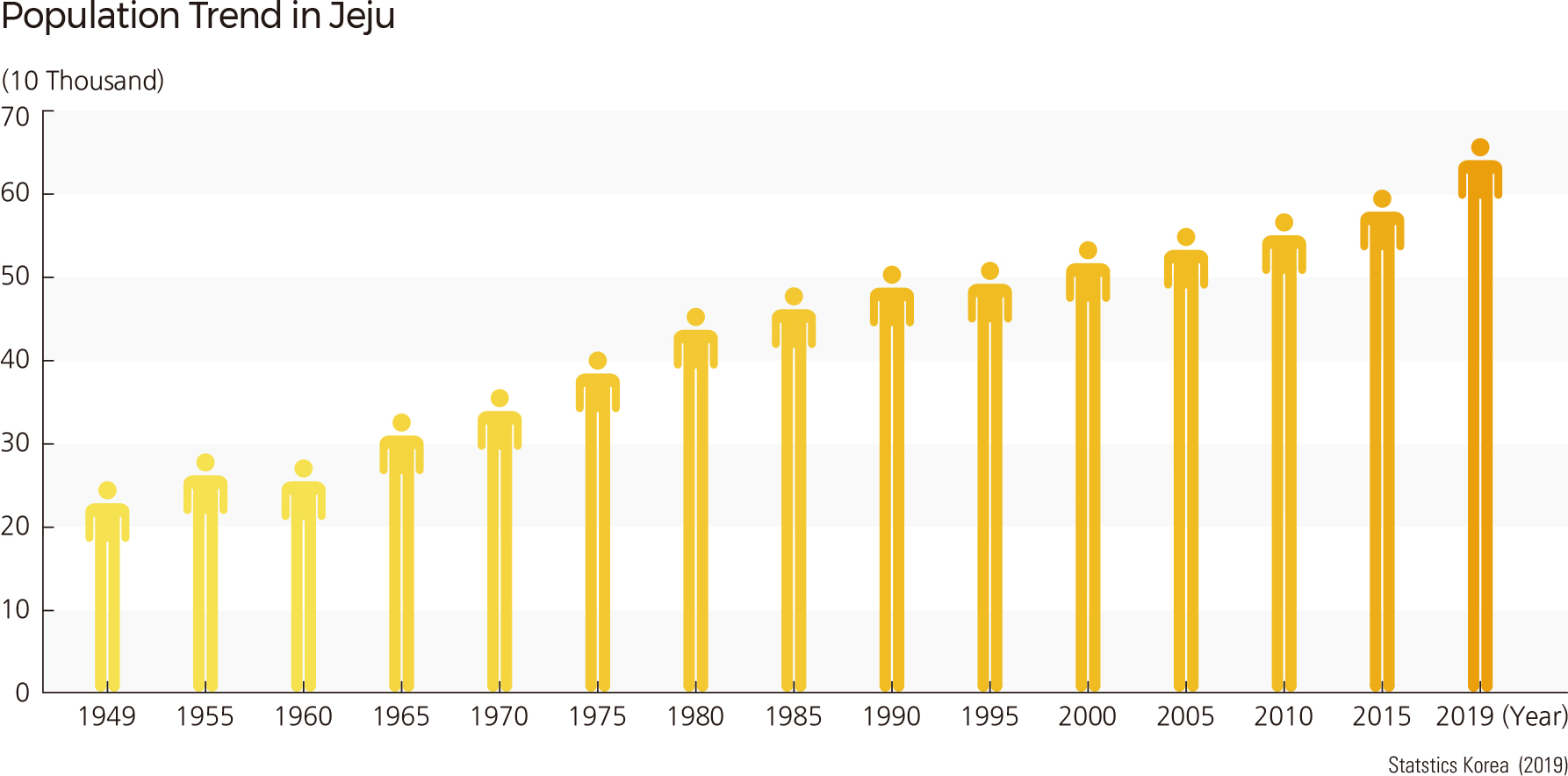English I 2019
Jeju is Korea’s largest island and is known for its beautiful natural landscape and unique cultural heritage, which attracts many tourists. Jeju Island was created by volcanic action and is characterized by volcanic topography, such as Hallasan Mountain, which is located at the heart of the island along with numerous parasitic cones and caves surrounding it. Jeju was designated as a UNESCO Biosphere Reserve in 2002 and as a World Natural Heritage Site in 2007. Jeju was also certified as a Global Geopark in 2010, which made it part of the natural heritage the entire world should protect and conserve.
Jeju’s well-preserved natural environment, unique ecosystem, and cultural background made it an ideal location for various leisure and recreational facilities. As numerous tourists visit the island every year, the Seoul (Gimpo)-Jeju airline route has become one of the busiest air routes in the world.
In 2006, Jeju became the first Special Self-Governing Province to facilitate regional development that focuses upon unique regional attributes. The plan to build an international city of Jeju to facilitate free trade has been established and announced. Jeju is one of the metropolitan cities and provinces. However, unlike any other metropolitan cities and provinces, the Jeju Special Self-Governing Province has a high level of autonomy in education, legislation, and finance. Specifically, the island is attracting foreign visitors, investors, and immigrants, as the autonomy implemented administrative deregulation and introduced international standards while setting up various policies ensuring free enterprise. One policy makes a 30-day non-visa stay possible in Jeju. After the launch of this Special Self-Governing Province, foreign investment increased, and many foreign educational institutes have been established thanks to streamlined regulations. At the same time, Bukjeju-gun was merged into Jeju-si, and Namjeju-gun was integrated into Seogwipo-si. Jeju’s population has increased by around 1% every year since 2010. The current population is 669,771. |

